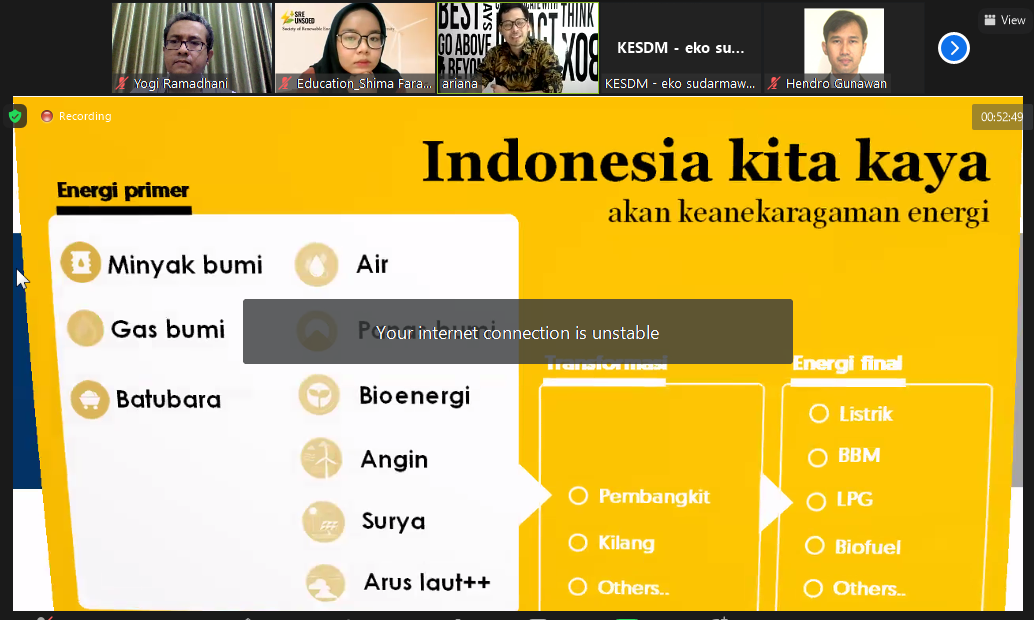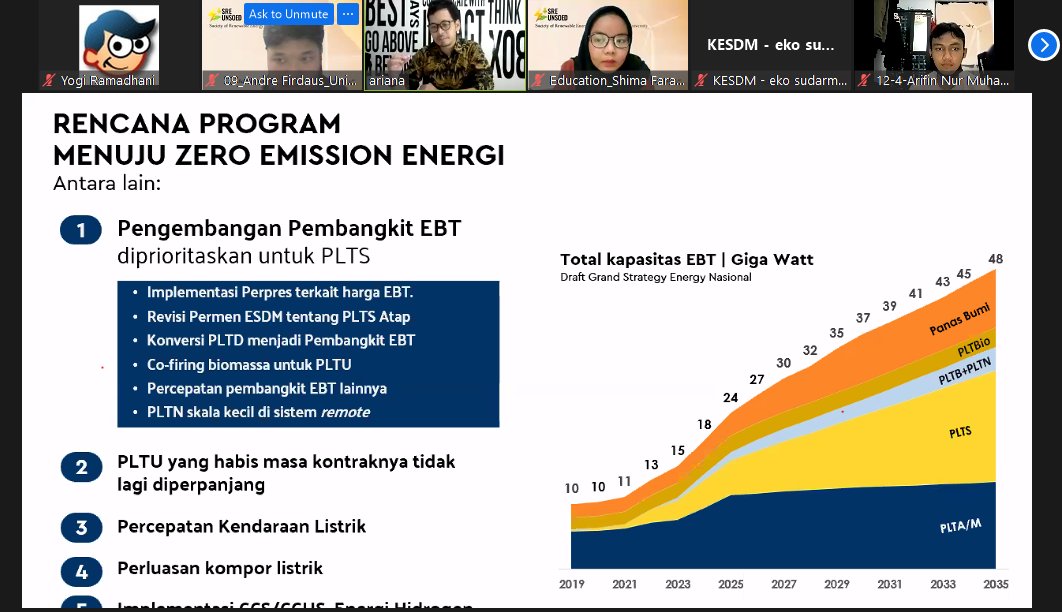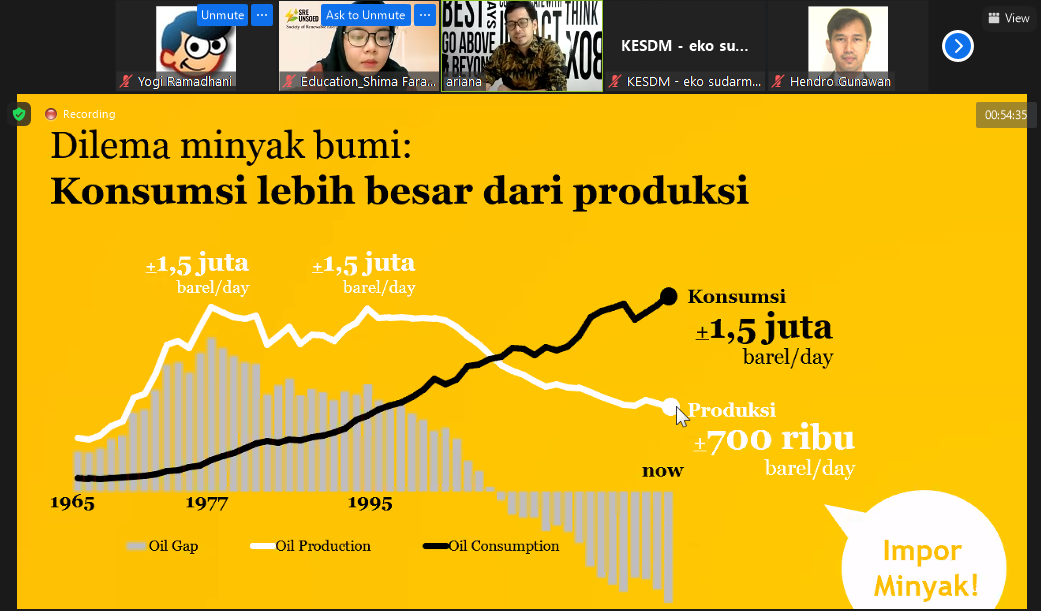Ministry of Energy and Mineral Resources Gives Contents Material on New Renewable Energy Policy
[unsoed.ac.id, Mon, 27/09/21] Society of Renewable Energy Universitas Jenderal Soedirman (SRE Unsoed) held the 4th series of Coaching Clinics, online on September 24, 2021. This coaching clinic has the theme of "To what extent are New and Renewable Energy Policies in Indonesia",with the speaker being Mr. Ariana Soemanto, Head of Division in Communication and Public Information Services, Ministry of Energy and Mineral Resources RI.
This activity was attended by all members of SRE Unsoed and several other invitees. Also attending the event were Head of Energy Conservation Bimtek, Eko Sudarmawan; Head of Sub-Directorate of Energy Conservation Cooperation and Technical Guidance, Hendro Gunawan; PLN ULP Purwokerto Manager, Maulana; Indonesian Solar Panel Community; and also from several other institutions.
In general, Mr. Ariana Soemanto, explained several conditions and energy policies in Indonesia, starting from the oil and gas, coal and EBT (New and Renewable Energy) sectors as well as the role of students in supporting the transition to EBT. "In the oil and gas sector, the ratio between supply and demand of oil in Indonesia is still not balanced where the power of consumption is higher than production power available which requires Indonesia to import oil from other countries, by contrast ratio between supply and demand of gas has been very profitable because power production is higher than the people's consumption power, which makes Indonesia one of the gas exporting countries," he said.
In addition, it was also conveyed that in an effort to achieve zero emission, the government through the Ministry of Energy and Mineral Resources has a myriad of plans to achieve this goal, including the development of EBT plants (starting from the implementation of a presidential regulation related to EBT prices toco-firing of biomass for PLTU), PLTU whose contract period has expired being not extended, the acceleration of electric vehicles until the expansion of electric stoves. Meanwhile, to accelerate the 23% NRE mix, it cannot only be realized by the government, but the younger generation also takes an important role through campaigns about NRE, for example in the rooftop solar PV sector.
This activity ended with a discussion with the participants, and on this occasion, the resource person also said that in an effort to develop NRE in the academic community, the Ministry of Energy and Mineral Resources is ready to support ideas and innovations initiated by students in NRE by opening the widest possible gates to stakeholders related to the important document requirements in the form of a briefing sheet prepared by students in advance. The Ministry of Energy and Mineral Resources, through the Communications and Public Information Services section, is also ready to cooperate with Universitas Jenderal Soedirman in relation to the development of EBT.
Furthermore, Pak Eko Sudarmawan added, further discussions of this kind need to be carried out to make the development of EBT successful in Indonesia, and the Directorate of Energy Conservation is also preparing several regulations related to energy conservation to support the achievement of EBT implementation in Indonesia.




